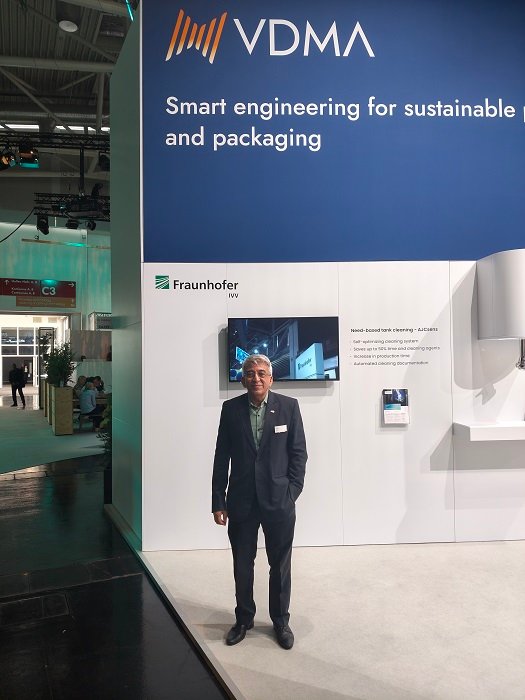
During drinktec 2025 in Munich this September, Packaging South Asia had a conversation with Rajesh Nath, managing director of German Engineering Federation (VDMA) India, about the significance of the show for Indian companies and the growing Indo-German collaboration in the beverage and packaging sectors.
How important is drinktec for Indian companies?
drinktec is certainly an important platform. What stands out this year is the Indian participation – around 14 exhibitors – perhaps the largest we have seen so far. Ten to fifteen years ago, there were only two or three. This time, at least half of the Indian participants are first-timers. That’s very encouraging, because it shows Indian companies are actively seeking global exposure, especially in Europe.
India’s domestic consumption strength makes the industry attractive. With a growing population, beverage consumption is rising – whether it’s beer, wine, or health drinks. Post-Covid, the demand for health-oriented beverages has surged. We are seeing more focus on hygiene, packaging innovations, and technologies that extend product shelf life, all of which benefit consumers.
What role did VDMA India play at drinktec?
VDMA India helped promote the exhibition within the country and encouraged participation. Several VDMA member companies, including KHS and Krones, were present with their Indian teams, and we were pleased to see that many Indian customers also attended. For us, it’s been a win-win situation – Indian companies connect with technology providers, while German and other global companies engage directly with Indian users.
It’s also worth noting that VDMA played an important role when drink technology exhibitions first began in India years ago. We partnered with Messe München and Messe München India, and it is satisfying to see the show now well-established and growing.
How do you view the link between drinktec Munich and drinktec India?
drinktec Munich is a global platform, with exhibitors from over 70 countries and visitors from more than 100. drinktec India complements this by providing access to companies and visitors who may not be able to travel to Europe. For Indian and South Asian user industries, it’s an opportunity to see new technologies at home, while international suppliers gain direct access to the region’s markets.
What trends do you see with German companies in India?
The geopolitical situation and the pandemic have made India a priority for many German firms. We are seeing growing interest and significant investments. KHS, for example, is expanding, and Krones is setting up a new factory in India. From VDMA’s perspective, we see almost either a new investment or expansion by German companies in India every few weeks.
This is supported by India’s strong GDP growth, stable political environment, and favorable demographics compared to many neighboring countries. All of this gives German companies confidence in the Indian market.
What about the EU-India trade agreement?
Both sides have shown optimism about the free trade talks. Just recently, the EU made very positive statements about progress, and there is hope for a signing by the end of the year. A strong EU-India partnership would provide India with a reliable and reputable trading partner, particularly at a time when global trade faces many uncertainties.










